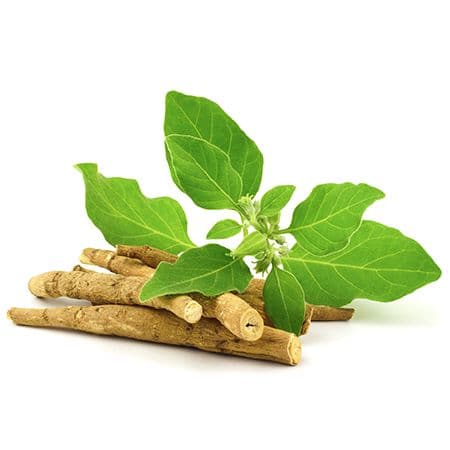Decreased Libido
What Is Decreased Libido?
Decreased libido refers to a reduced interest in sexual activity, which can be influenced by physical, emotional, or psychological factors. It’s important to note that what constitutes “low” libido can vary from person to person. For some, a decrease in sex drive might feel distressing, especially if it affects their relationship or self-esteem.
Common Symptoms of Decreased Libido
If you're experiencing low libido, you may notice the following symptoms:
- Lack of interest in sexual activity: A noticeable decline in sexual thoughts or fantasies.
- Reduced desire to initiate or participate in sex: A reluctance to engage in sexual activities with a partner.
- Difficulty becoming aroused: For some, physical arousal may also be challenging, even when there is a desire for intimacy.
- Emotional distance: Low libido can sometimes create feelings of disconnection from a partner, impacting emotional intimacy.
What Causes Decreased Libido?
There are many potential causes of decreased libido, ranging from hormonal imbalances to lifestyle factors and emotional health. Understanding the root cause is essential to effectively address and manage the issue.
- Hormonal Imbalances: Hormones play a key role in regulating sex drive. In women, fluctuations in estrogen and progesterone during life stages like pregnancy, perimenopause, and menopause can lead to reduced libido. For men, low testosterone levels are a common cause of decreased sex drive.
- Estrogen and progesterone: These hormones fluctuate significantly throughout a woman’s life, especially during menopause and pregnancy. Lower estrogen levels, for example, can lead to vaginal dryness and discomfort during intercourse, reducing desire.
- Testosterone: Though often associated with men, testosterone is also present in women and plays an important role in sexual desire for both sexes. Low levels of testosterone can lead to reduced libido, energy levels, and mood swings.
- Stress and Mental Health: High levels of cortisol, the body’s stress hormone, can significantly lower libido. Anxiety, depression, or unresolved emotional issues can also reduce interest in sex, making stress management a critical factor in improving sexual health.
- Medications: Certain medications, including antidepressants (especially SSRIs), birth control pills, and medications for high blood pressure, may lower libido as a side effect.
- Chronic Conditions: Health conditions like diabetes, heart disease, obesity, and thyroid disorders can impair libido by affecting energy levels, hormone balance, and overall physical health.
- Relationship Issues: A strained relationship or unresolved conflict with a partner can contribute to a decrease in sexual interest. Lack of communication, trust, or emotional intimacy can also lead to reduced libido.
- Lifestyle Factors: Unhealthy habits, such as poor diet, lack of sleep, excessive alcohol consumption, or smoking, can impact sexual desire and performance.
Hormonal Health and Decreased Libido
For women, hormone levels fluctuate throughout life, and these fluctuations can directly impact libido. Menopause is a common trigger for low libido in women, as estrogen levels drop and testosterone production may also decline. These changes can lead to vaginal dryness, discomfort during sex, and a reduction in sexual desire. Similarly, pregnancy and the postpartum period are marked by dramatic hormonal shifts that can reduce libido due to fatigue, stress, and changes in body image.
In men, a gradual decline in testosterone—often called andropause—can lead to decreased libido, erectile dysfunction, and reduced sexual stamina. Maintaining balanced hormone levels through lifestyle and dietary adjustments can help mitigate these effects.
Managing Decreased Libido: Medical and Natural Approaches
There are several ways to manage decreased libido, from medical treatments to natural approaches that focus on overall well-being. It’s important to address the root cause of the issue to restore sexual desire and satisfaction.
Medical Treatments
- Hormone replacement therapy (HRT): For women experiencing menopause or hormonal imbalances, HRT can help restore estrogen and progesterone levels, improving libido and relieving symptoms like vaginal dryness.
- Testosterone therapy: In men, testosterone replacement can help address low libido caused by declining testosterone levels. It may also be used in women with very low testosterone levels.
- Counseling or sex therapy: If emotional or psychological factors are contributing to low libido, therapy or couples counseling can help resolve underlying issues.
Herbs and Natural Products for Managing Decreased Libido
In addition to medical treatments, several natural remedies and herbs can help improve sexual desire by balancing hormones and reducing stress:
- Maca Root Maca is a popular adaptogen traditionally used to boost libido and energy. It has been shown to enhance sexual desire in both men and women, especially those experiencing hormonal imbalances due to menopause or stress.
- Ashwagandha This powerful adaptogen helps regulate cortisol levels and supports the body’s stress response. By reducing stress and promoting relaxation, ashwagandha can help improve libido, especially in those experiencing stress-related sexual issues.
- Tribulus Terrestris Tribulus is an herbal remedy commonly used to support sexual health by enhancing testosterone levels. It has been shown to improve sexual desire and satisfaction in women, particularly during menopause, and may also benefit men with low libido.
- Ginseng Ginseng is often used as a natural aphrodisiac to enhance libido and sexual performance. It is thought to increase energy levels, reduce stress, and support overall sexual health.
- Fenugreek Fenugreek seeds contain compounds that can help improve sexual arousal and libido. Studies have shown it can be beneficial for women experiencing low libido due to hormonal changes and men with low testosterone levels.
- Damiana Traditionally used to improve sexual health, damiana is thought to have a stimulating effect on the nervous system, helping to enhance libido and arousal.
Lifestyle Changes for Managing Low Libido
Adopting certain lifestyle habits can significantly improve libido by enhancing both physical and emotional well-being:
- Stress management: Incorporate stress-relieving activities like yoga, meditation, or deep breathing exercises to help reduce cortisol levels and improve sexual desire.
- Regular exercise: Physical activity boosts endorphins, improves mood, and supports overall health, which can positively impact libido.
- Healthy diet: Eating a nutrient-dense diet rich in vitamins and minerals that support hormone balance (like zinc, magnesium, and vitamin D) can help enhance libido.
- Adequate sleep: Lack of sleep can disrupt hormone production and increase stress, both of which can lead to reduced libido. Prioritize quality sleep for overall health and sexual function.
- Communication with a partner: Open conversations about desires, concerns, and emotional intimacy can strengthen relationships and positively impact libido.
Final Thoughts
Decreased libido can be frustrating, but with the right approach, it can often be managed effectively. Whether the root cause is hormonal, emotional, or physical, addressing the underlying issues can help restore sexual desire and improve overall well-being. Incorporating natural herbs like maca, ashwagandha, and ginseng, along with lifestyle changes that reduce stress and improve hormonal balance, can support a healthy libido and enhance your intimate relationships.





